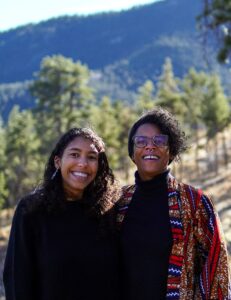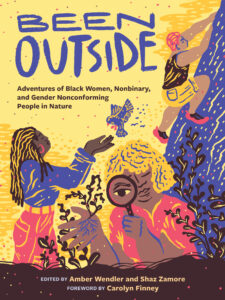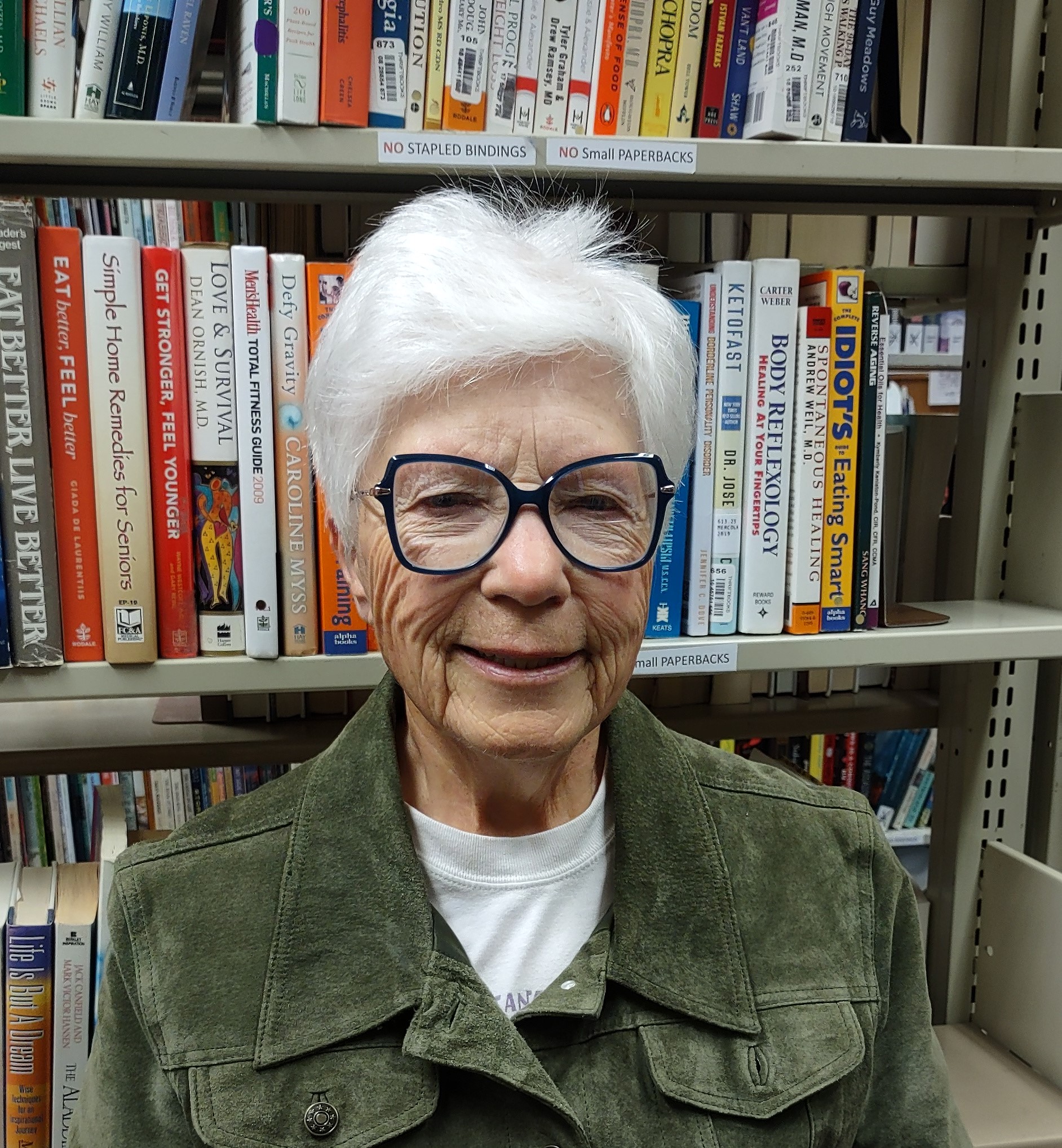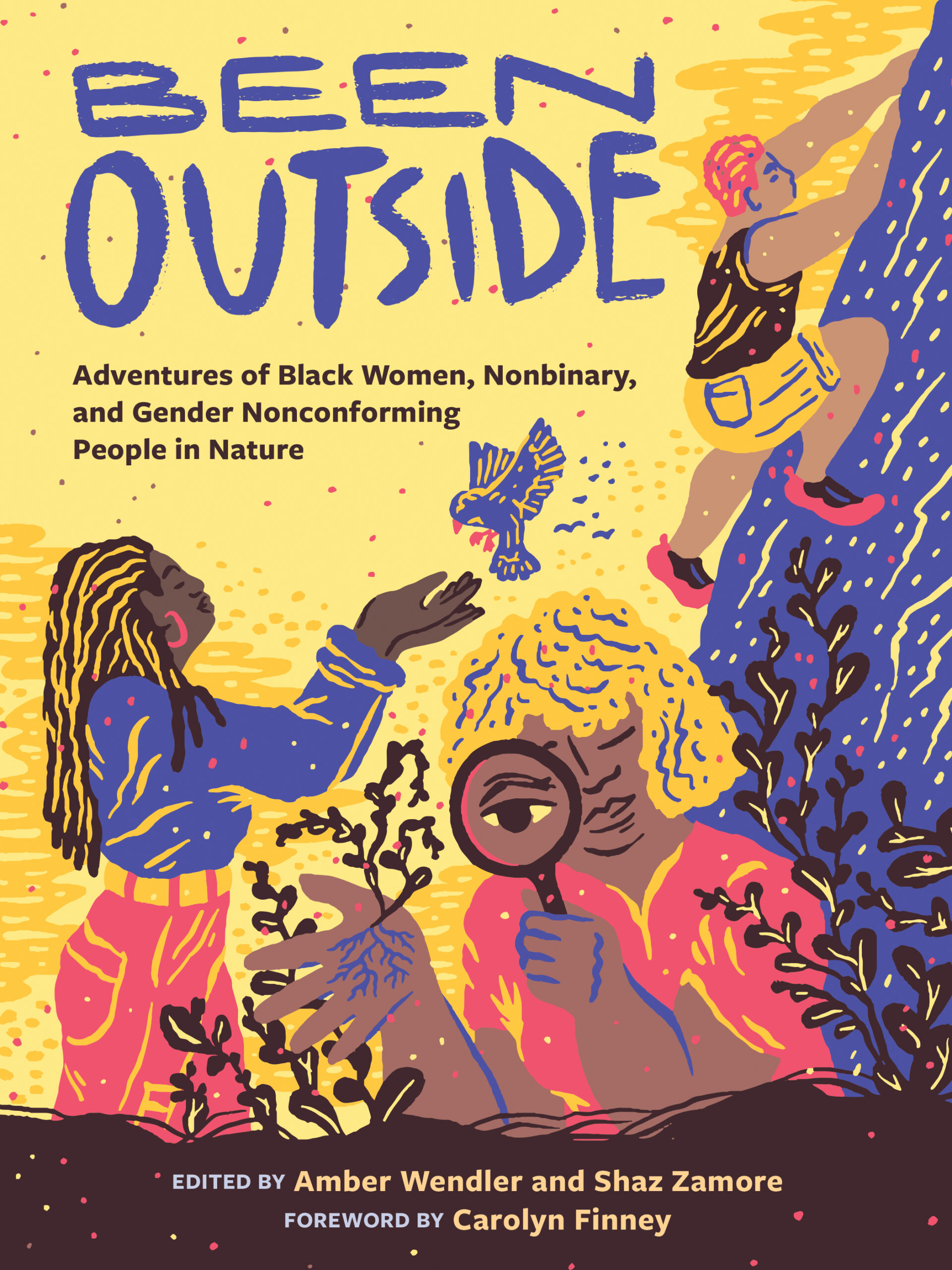Being at home in the natural world
Anthology explores the quest for acceptance by Black women, gender nonconforming and nonbinary people in nature
Anthology explores the quest for acceptance by Black women, gender nonconforming and nonbinary people in nature
Biography has long attracted readers who are curious to learn what it’s like in someone else’s skin. Been Outside: Adventures of Black Women, Nonbinary, and Gender-Nonconforming People in Nature, an anthology of essays, not just metaphorically but literally introduces readers to people described in the book’s subtitle, found in white-dominated natural spaces.
Whether born in Colorado or working and playing here and elsewhere in the world, these 22 writers developed relationships with nature that exhibited grandeur, provided escape and, in some cases, enhanced careers. Echoes of the current presidential race rumble when these writers, whether born in Ghana, Detroit or South Carolina (Black, brown, gender non-conforming or nonbinary) struggle to find acceptance, safety and comfort in their careers and lives in the great outdoors.

Editors Amber Wendler and Shaz Zamore
Bolstered by research documentation plus recommendations for further reading, viewing and visiting, the anthology Been Outside was conceived and largely written during the pandemic. Edited by Amber Wendler, a PhD candidate in biological science, and Dr. Shaz Zamore, a teaching assistant professor and STEAM coordinator at Colorado University-Boulder, Been Outside highlights an expanse of outdoor experience by explorers claiming their place in nature.
Unapologetically bold, editors say there should be no surprise that Black and indigenous women are outside; they’ve spent at least 12,000 years of human history living and working outdoors. Further, humans have shaped over four-fifths of the ice-free Earth and, today, the environment is in urgent need of help from people representing all walks of life, not just those ‘in charge.’ The editors challenge the “adventuresome reader” with a collection of voices ranging from those who accidentally discovered the joys of nature to others who fought to be where they belonged.
Tucked into the book’s four sections are writers who faced obstacles to success while developing or maintaining a healthier sense of self and of belonging. That is expressed in Joelle Jenkins’ poem, “Black Women in Nature”:
Black women in nature,
The (re)birth of a movement.
Rightfully reclaiming our space,
A much-needed improvement,
We are unstoppable,
For the storms we endure just make our roots stronger,
As much as others deny it,
We are essential, like water.
Yet these authors, rooted in nature historically, describe the disappointments of routine neglect, pretend interviews, overlooked assets and talents, assumed inadequacies, stereotyped ignorance and surprise that a Black woman/a nonbinary person/a gender-nonconforming person could be interested in science or the outdoors. The writers’ choices range from ecology, marine science careers, research projects, botany and reggae to competition in snowboarding and motocross.
Leandra Taylor “landed on environmental science after learning more about the impacts of humans on the planet’s flora and fauna.” Job hunting was daunting but her first job in her chosen field brought her to New Mexico where she digitized 60 years of whooping crane migration statistics. A converted city dweller, Taylor discovered mountaineering, too. In 2018, she joined an all-Black American team climbing Mount Kilimanjaro in Tanzania, Africa. Unaccustomed physicality outside tested each person. After the hardest third day, Taylor declared, “The most important lesson I learned was that the summit isn’t always the top of the mountain. The journey is just as important as the destination.”
Tanisha Williams shares her personal journey of returning to South Africa, her birthplace. She had dreamed of travel throughout Africa, but it was the work of her dissertation that took her back. Her time there was transformative not only because it afforded her the opportunity to learn the culturally varied history of her homeland but also because South Africa has the sixth largest number of plant species in the world and the richest variety on the African continent.
Dr. Samniqueka Halsey, professor and supervisor of intern researchers at the School of Natural Resources at the University of  Missouri, learned through her own experience that women of color often must work harder than others to reach goals in her field. While trying hard to succeed, many of her students suffer from stressful schedules, fear of failure and of not meeting expectations. Committed to buoying strugglers, Dr. Halsey knows that “[d]espite initiatives aimed at increasing diversity in STEM, researchers are still putting the research and data before the health and safety of students.”
Missouri, learned through her own experience that women of color often must work harder than others to reach goals in her field. While trying hard to succeed, many of her students suffer from stressful schedules, fear of failure and of not meeting expectations. Committed to buoying strugglers, Dr. Halsey knows that “[d]espite initiatives aimed at increasing diversity in STEM, researchers are still putting the research and data before the health and safety of students.”
Kelly Greenlight Thomas in her essay “Zion Train” describes seeking the rolling mountains of Ashville, North Carolina, with other Black and brown city dwellers who “were ready to explore beyond the cement blocks we were prescribed.” Just a few hours in the mountains brings to light Earth’s record of our human ancestors, Thomas observes. Unable to escape the sadness and grief felt on some of the trails in U.S. parks, she describes dismissive treatment that ranges from casual violence to unwelcome scrutiny that edits melanated people from the scene. Finding nature more generous and giving than some of its human inhabitants, Thomas founded Black Arts Retreats, safe, communal experiences in nature that bring artists into a hub for Black creativity, culture and holistic wellness.
A recent Colorado Sun article concerning demographic changes within the outdoors cites growth in the number and diversity of outdoor participants due to the new and young, women, people of color and seniors. The article points to regional retreats led by Angel and Bobby Massie. The former Bronco offensive lineman and his wife have introduced people of all colors to Colorado outdoors and wilderness, from hiking to fly fishing, allowing people to experience the natural world as a next-door neighbor. Although outdoor participation by Black and brown citizens lags far behind whites who comprise 69.7 percent of outdoor participants, numbers are rising to 10.3 percent and 13.4 percent respectively for Black and brown adventurers. And fully 11.3 percent of the total outdoor participant population is from the LGBTQ+ community, a percentage representing 19.9 million people.
Jasmin Graham, president and CEO of Minorities in Shark Sciences, presents a list of five unwritten safety rules for people of color working or playing in nature. Within that discussion, Graham gives non-melanated companions insights for becoming allies. Instead of defaulting to defensive or stereotypical social attitudes and actions, ally hopefuls can ease situations by learning to listen carefully to language, paying attention to body language, learning to hype the deserving, helping to de-escalate dangers and aiding escape when necessary.
“Black scientists want nothing more than to just be scientists,” Graham concludes. “Allies who alleviate the burden can make a world of difference as we strive to be as unencumbered as our white counterparts.”
Readers may discover that, as editors suggested, “Reading this book is an act of social and environmental justice. With grace, these stories can stoke meaningful, exploratory conversations for years to come.”
Born in Ohio but a resident of Colorado Springs since 1955, Beverly has watched the city grow. Achieving a BA from what was then Colorado State College with later graduate work at CC and University of Birmingham, England, she began a 16-year teaching career, 10 years freelancing and full-time volunteering, before spending 26 years with the Pikes Peak Library District. Author of the teachers' guide, History of the Pikes Peak Region, she is still surrounded by books and serves as a board member with the Friends of the Pikes Peak Library District.
Click here for more from Beverly Diehl.

